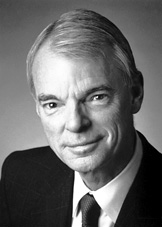
THE VOICE OF INTERNATIONAL LITHUANIA
|
VilNews has its own Google archive! Type a word in the above search box to find any article.
You can also follow us on Facebook. We have two different pages. Click to open and join.
|

Professor Michael Spence,
recipient of the 2001 Nobel Memorial
Prize in Economic Sciences
A review of:
Michael Spence, The Next Convergence: The Future of Economic Growth in a Multispeed World. New York: Farrar, Straus and Giroux 2011. xvi+296 pages.
The book is a product of the independent High Level Commission on Growth and Development that completed its work in 2010. Members of the Commission included leaders of social and economic transformations internationally and top global experts such as Robert Solow, the father of modern growth theory, and Mohamed El-Erian, CEO of Pimco. Prof. Michael Spence, the 2001 Nobelist in Economics, chaired this unique effort.
The reading of this book is a humbling experience. The reader is immediately hit by the vast intellectual expanse of the topic and the Author’s Nobel winning theoretical brilliance combined with his “hands-on” practical-analytical, integrative, and simplifying capabilities keeping the argumentation both rigorous and free from the rather unnecessary technical jargon.
Prof. Spence argues that the formerly huge asymmetries between advanced and developing countries are declining and the pattern for the first time in some 250 years is that of convergence rather than the usual divergence. Part one of the book deals with the shifting characteristics of the postwar global economy, part two is devoted to sustained economic growth theory and practices, part three analyzes the development impact of the Great Recession that started in 2008, and part four analyzes the future trends and sustainability of economic growth. Throughout the book, the leading leitmotiv is the issues of economic governance and leadership in this new era of convergence.
Economic growth dynamics is sometimes subject to hitherto rather unexplained statistical laws. For example, the so called 72 rule used by statisticians of growth says that the time it takes in years to double the economy in size is equal to 72 divided by the specific annual growth rate. So at 1% (e.g. EU) growth rate, economy (or income) doubles in 72 years; at China’s usual 10% growth rate, economy doubles in roughly 7 years. This gives the reader a measure of the great power of the new convergence processes as well as a measure of the opportunity cost of development retardation due to wars, totalitarianism, political turmoil, endemic corruption or natural factors. Many developing countries, especially small and/or landlocked ones, spend long periods of time languishing in a low growth mode due to these factors. This “low equilibrium”, that is not unlike a gravitation pull, must be broken by a decisive leadership and then shifted to a new sustainable pattern. Somewhat different challenges await countries that have already largely achieved a middle-income plateau.
Prof. Spence argues that we are now midway through a century of high growth in the developing world and a convergence with the advanced countries; this is the main trend that will change the world beyond recognition. He explains what happened to cause this dramatic shift in the prospects of the 5 billion or so people who live in developing countries, his discussions of human capital, knowledge transfer, and governance in the developmental catch-up processes are revealing.. These newcomer countries have already become an increasingly important engine of growth in the global economy bringing about the prospects of new, multi-speed and multi-polar global village. I about a decade, over 50% of the global product will come from these developing countries that are probably better named emerging markets. This is a very optimistic message. However, these extraordinary developments will yet present hitherto unknown challenges in governance, international coordination, and environmental sustainability on a global scale, no doubt about it. The Author ventures a bold and lucid analysis of what is at stake for us and our children in this new brave converging global economy.
The book is likely to become a reference material for top level discussions about the state of this global village of ours in the next few decades. In particular, this Great Recession of will propel the book to one of the main readings on how to creatively rebalance the global economy and arrive at new and more sustainable re-combinations of global, continental, national, regional, local, and individual economic interests. As well, the thinking about modern roles of all the levels of government in the economy will be impacted deeply by this book. That helps a lot in the era of deepening theoretical confusion and helpless doom and gloom prognostications.
With a certain effort, the book is accessible to most educated readers. A very broad spectrum of readers can immensely benefit from reading this unique book but leaders of all kinds of organizations dispersed globally should adopt it as a must read.
Valdas Samonis
Institute for New Economic Thinking, New York City
and SEMI Online, Toronto
- Bookmark :
- Digg
- del.icio.us
- Stumbleupon
- Redit it
VilNews e-magazine is published in Vilnius, Lithuania. Editor-in-Chief: Mr. Aage Myhre. Inquires to the editors: editor@VilNews.com.
Code of Ethics: See Section 2 – about VilNews. VilNews is not responsible for content on external links/web pages.
HOW TO ADVERTISE IN VILNEWS.
All content is copyrighted © 2011. UAB ‘VilNews’.

 Click on the buttons to open and read each of VilNews' 18 sub-sections
Click on the buttons to open and read each of VilNews' 18 sub-sections 



[…] Read more… Category : Front page […]